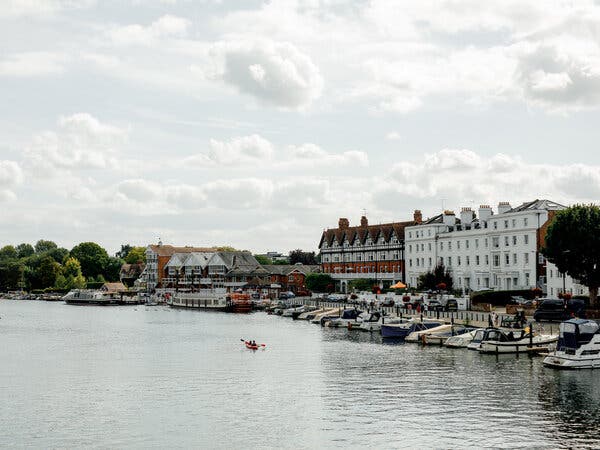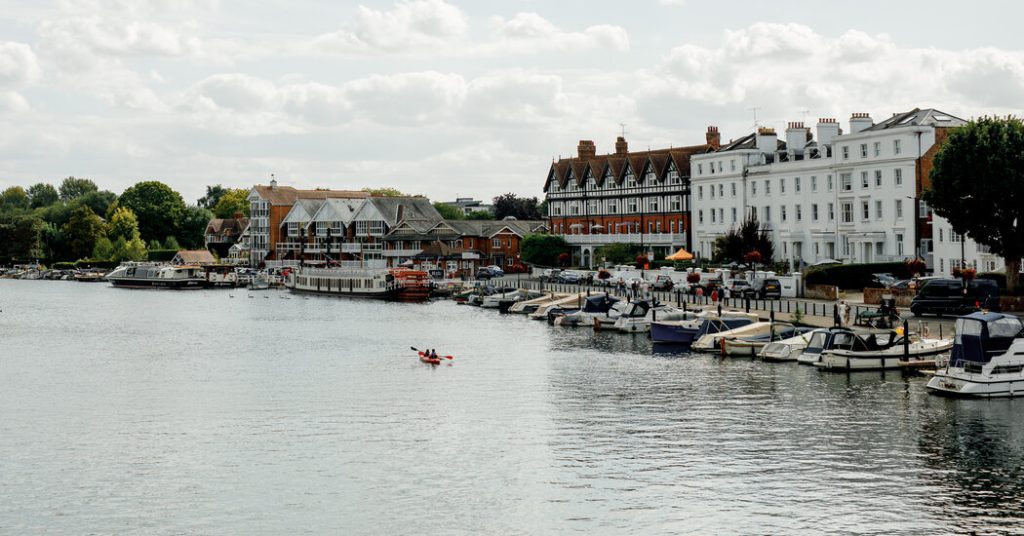
Amid a Water Crisis, England Asks: Who Should Be in Charge?
Four decades after privatization, calls to nationalize the water industry have swept across England and Wales amid sewage spills and rising household bills.
Supported by
SKIP ADVERTISEMENT
Eshe Nelson
Reporting from London and Henley-on-Thames, England
- Published Oct. 14, 2024Updated Oct. 16, 2024
On its journey to the North Sea, the River Thames runs through Henley, a picturesque middle-class town about 35 miles west of London. The river is central to the town’s identity, which is known for its annual royal regatta and for being the location of the first boat race between Oxford and Cambridge Universities.
Long a source of pride, the river is now a source of alarm.
“In the last two years, it’s just got worse and worse and worse,” said Laura Reineke, 51, a Henley resident who started a local swimming group, the Henley Mermaids.
The water is “murkier, and if you do see vegetation on the bottom, it’s covered in sewage fungus,” she said. While swimming in the Thames, she added, the group has also seen sanitary products caught in the plants, colostomy bags and what appear to be excrement marks on swans.
Nearby, wastewater treatment plants for Thames Water, England’s largest water company, sometimes dispose sewage into the river and local streams, drawing complaints from Henley residents.
Thames Water is not alone. The 10 water utilities in England and Wales, which were privatized in 1989 during a wave of deregulation and free-market liberalization, have become a target of public ire over polluted waterways and rising household bills.
The number of people getting sick from the water is growing, according to data collected by campaign groups and hospital admissions. Surfers Against Sewage, a nonprofit group that tracks water quality around Britain, said more than 1,900 people reported getting ill after entering the water last year, nearly triple the number from the previous year. But this was likely just “a glimpse into the true scale” of the problem because it included only reports submitted to the group, it said.
We are having trouble retrieving the article content.
Please enable JavaScript in your browser settings.
Thank you for your patience while we verify access. If you are in Reader mode please exit and log into your Times account, or subscribe for all of The Times.
Thank you for your patience while we verify access.
Already a subscriber? Log in.
Want all of The Times? Subscribe.
Advertisement
SKIP ADVERTISEMENT
Source: https://www.nytimes.com







More Stories
Washington Post Cancels Ad From Groups Calling for Trump to Fire Musk
As Trump Attacks D.E.I., Some on the Left Approve
One Response to Trump’s Tariffs: Trade That Excludes the U.S.